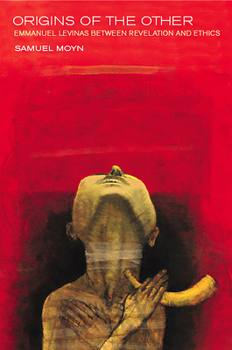Origins of the Other
Select Format
Select Condition 
Book Overview
The French-Jewish thinker Emmanuel Levinas (1906-1995) is today remembered as the central moralist of the twentieth century and remains a major presence in the contemporary humanities. In this book, written in lucid and jargon-free prose, Samuel Moyn provides a first and controversial history of the makings of his thought, and especially of his trademark concept of "the other."Restoring Levinas to the intellectually rich and combative atmosphere...
Format:Paperback
Language:English
ISBN:0801473667
ISBN13:9780801473661
Release Date:January 2007
Publisher:Cornell University Press
Length:288 Pages
Weight:0.95 lbs.
Dimensions:0.7" x 6.2" x 8.5"
Age Range:18 years and up
Grade Range:Postsecondary and higher
Customer Reviews
2 ratings
At their very best: both the history of ideas and intellectual history
Published by Thriftbooks.com User , 16 years ago
As an historian of ideas who wrote a doctoral disseration in 1968 at the University of Wisconsin in Madison on "Ideas of Individualism: A Twentieth Century Social Critique," the author's study of the idea of otherness is truly brilliant. While the history of ideas is more philosophical in its orientation, analysizing an idea's interior content, intellectual history is more sociological in its orientation, identifying an idea's exterior context. From both of these perspectives, Samuel Moyn's study of the thought of Emmanuel Levinas is a remarkable achievement. As intellectual history, the "Origins of the Other" deals not only with the historical milieu in which Levinas found himself, but also with how others were responding to this same milieu. Since ideas do not emerge in an historical vacuum, in dealing with these others, this volume readily becomes a history of philosophical presuppositions through time. For the present, conceived in the past, is pregnant with the future. As a history of the interior content of an idea of the "other," this otherness has several dimensions, two of which I note. Its most primary dimension involves what I call the primacy of individuality or sociality. Although in my dissertation I employ a mode of analysis and synthesis that is doubly dialectical, individuality and sociality nurturing one another as well is being an impediment, more recently I have realized that we are one-anothered into existence through parents who themselves represent the vast genetic pool of not only the human species, but indeed the humus of our earth and the stardust of our universe. Thus, one-anothered into existence, we never cease one-anothering one another into the fullness of our humanity. The other dimension to be noted is a relationship between our humanity and what we call divinity, in other words, between the sacrality and secularity of our lives. It is at this point that the subtitle of Moyn's prophetic study becomes most relevant, "Emmanuel Levinas Between Revelation and Ethics." Presently many forms of religious fundamentalism have arisen to challenge the brutalizing secular fundamentalism of a globalized market. For decades it has been my conviction that this secularity has triumphed by default, the by-product of a myopic sacrality that has forsaken an holistic vision of our humanity for-the-sake of an idolartrous ritual. As Moyn argues im the 268 pages of his study, Levinas struggled mightly to bring us to this threshold, the ethics of how we otherize one another, that we do so otherwise than through the violence of our lives.
Great intellectual history, well-written scholarship
Published by Thriftbooks.com User , 17 years ago
The previous negative review of this book is way off base. This is a superb piece of scholarship ably dealing with high-level philosophy to provide an astute contextualizing intellectual history of not just Levinas, but also of some of the key philosophical debates in 20th-century continental thought which contributed to the formulation of "the Other" as a concept. Prof. Moyn is assiduously reasonable and even-handed throughout. He's a model scholar who keeps a critical distance and is not out to wage a vendetta and dishonestly forward an agenda. (Maybe that just riles some people who comes to the book with strong allegiances to Levinas or other related thinkers.) And given the difficulty and often impenetrable-ness of many of these continental thinkers' idiom, Moyn's writing is admirably lucid, readable, and free of windiness. He's not out to intimidate the reader and discourage understanding. So, in its own way, even as it asserts its place as a pathbreaking addition to scholarship in intellectual history, it can also stand, somewhat, as a primer for those looking to understand the ideas and historical import of 20th-century continental thought.




